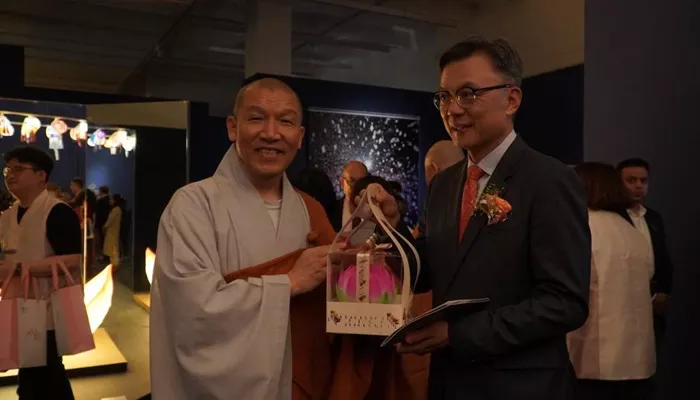Heero Hito, a Buddhist leader and advisor at India’s Subhāti Buddhist Institute, told The Korea Herald on Friday that India and South Korea must foster deeper academic, cultural and research collaboration.
Hito said Buddhism originated in India and is deeply rooted in South Korea’s cultural fabric, but has not grown significantly in either country in recent years.
“Through active international cooperation, cross-cultural activities and collective action, we must revive the Buddha’s teachings – reawakening universal values such as compassion, mindfulness and harmony that are so deeply needed in the modern world,” he suggested.
Hito pointed out that India and South Korea have a historical and emotional connection through the Buddhist tradition, and there is an urgent need to rekindle this spiritual, cultural and educational essence.
Buddhism originated in India and was introduced to Korea during the Three Kingdoms period in the 4th century and later to Japan.
Capitalizing on this spiritual connection, Subhāti Buddhist Institute in Meerut, Uttar Pradesh, India, has signed several memorandums of understanding with South Korea and launched research initiatives, student exchanges and cultural projects.
But he stressed that now is the time to use Ayurveda and traditional Korean medicine as icebreakers to “build active, authentic channels for more inspiring interactions”.
Koreans continue to harness the healing properties of natural resources from plants and animals, and Ayurveda – an ancient Indian medicine that means “complete knowledge of longevity” – is gaining popularity in South Korea.
“Both India’s Ayurveda and Korea’s traditional ‘hanyak’ medicine offer ancient healing systems rooted in nature and holistic health,” he said.
“Our goal is to launch research and training programs in collaboration with Indian and Korean traditional medical schools,” he said, hoping to use internships for medical students as a bridge to revive traditional knowledge.
But our universities are also developing a comprehensive curriculum that teaches Korean language and culture, directly linked to job-oriented training.
“Besides medical research, students who learn Korean can also be trained in fields such as basic manufacturing, IT or healthcare,” he said.
Hito believes that India’s young demographic structure is a strategic advantage. “India has huge youth potential, but they need proper training and guidance.”
“Both countries will benefit if India enters into a structured agreement with South Korea through vocational education, technical skills and trade,” he said.
Hito hopes to spearhead efforts including an Indo-Korean cultural festival and Buddhist pilgrimage, student exchanges and joint research. He envisions a vibrant, multi-dimensional partnership going forward.
“Subharti wants to build bridges between India and South Korea,” he said, highlighting his plans for a youth summit, health cooperation and a permanent Indo-Korean cultural center at Subharti University.
To strengthen Buddhist ties, Hito proposed high-level interfaith events, sending delegations of monks to visit Indian cultural sites and joint educational programs based on the values of dharma, dialogue and development.
Meanwhile, Emperor Hito suggested strengthening people-to-people ties and conducting high-profile cultural diplomacy.
“We plan to celebrate International Yoga Day on a large scale in Korea and organise an ‘Indo-Korean Buddhist Festival’ involving monks, scholars and artists from both countries,” he said.
In Hito’s view, it is time for India and South Korea to translate cultural rapprochement into practical cooperation.
“It is time to implement the spirit of the first Indo-Korean Cultural Agreement signed in 1974, expand diaspora ties and support cultural institutions that promote real exchanges.”
“Culture is not something locked in a museum, but something that needs to be lived,” he said.

